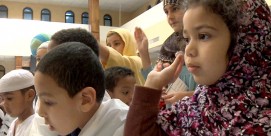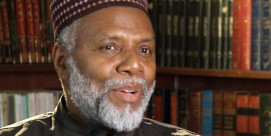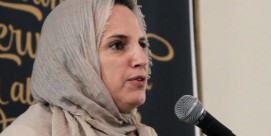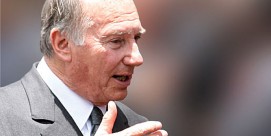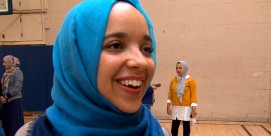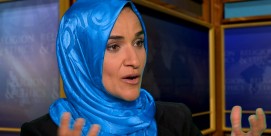READ TRANSCRIPTIMAM JOHARI ABDUL-MALIK (Director of Outreach, Dar Al-Hijrah Islamic Center): There are many people who have never been in a mosque before even though they work with Muslims, they live near Muslims, they pass by the mosque all the time, but there’s something foreboding about going into a house of worship that you don’t know what the traditions are, but there is a curiosity and so we discovered that if we told members of the congregation invite your friend and we have in this mosque about a thousand people for dinner every night. So 10 or 15 or 20 extra people, it’s not going to make a difference for us.
Our friends and neighbors will also come because they will share their traditions with us. What I learned after 30 years of interfaith dialogue is that when people come together and share their faith traditions they’re more likely to deepen the tradition they’re in than they are to join another and so it is through that deepening that all of us grow.
In This Episode << SLIDE LEFT TO SEE ADDITIONAL SEGMENTS
Some mosques use the month of Ramadan as an opportunity to educate friends and neighbors about Islam. The Dar al-Hijrah Islamic Center in Falls Church, Virginia encourages members of its congregation to bring non-Muslim friends to their iftar dinners, the meal that breaks the fast during Ramadan. Imam Johari Abdul-Malik describes how the program ties the community together.

